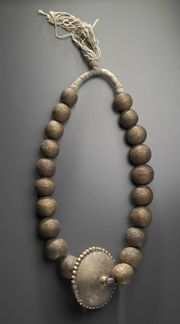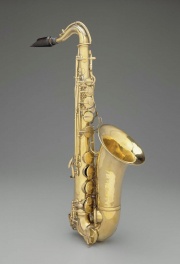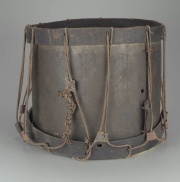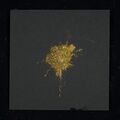Difference between revisions of "Brass"
(→Risks) |
|||
| Line 17: | Line 17: | ||
* Flammable in powdered form. | * Flammable in powdered form. | ||
* May cause allergic reactions in some people. | * May cause allergic reactions in some people. | ||
| + | |||
| + | ==Additional Images== | ||
| + | <gallery> | ||
| + | File:Microstructure of rolled and annealed brass; magnification 400X.jpg|thumb|Microstructure of rolled and annealed brass; mag. 400x | ||
| + | File:Brass powder.jpg|Brass powder | ||
| + | File:Printed brass-cropped.jpg|Printed brass | ||
| + | </gallery> | ||
==Resources and Citations== | ==Resources and Citations== | ||
Revision as of 11:06, 13 August 2024
Description
An alloy of Copper and Zinc that is harder and stronger than copper. The earliest known brass (Calamine brass) was made by heating zinc ore in the presence of pieces of copper. Brass was made in India and Mesopotamia as early as 1000 BCE and in Europe since Roman times. By the 5th century in Europe, brass had surpassed the use of bronze for domestic items, hardware and decoration. The color and flexibility of bronze vary with composition. As the proportion of zinc increases, the color becomes lighter, e.g. color (%zinc): bronze (10%), golden (15%), yellow (20-40%) and silvery (45%). The melting point of a 95% copper-5% zinc is about 1065 C but this temperature drops down to 880 C when the proportion changes to 50% copper-50% zinc. Maximum strength is obtained at 55% copper and maximum ductility occurs with 70% copper. Some variations are (% zinc): violet brass (0.05%), gilding metal (5-15%), jewelry bronze (12.5%), red brass (15%), common or yellow brass (25-36%), Muntz metal (40%), and white brass (66%). Below 36% zinc, brass has good mechanical properties; it is strong, malleable, ductile and corrosion resistant. Slight additions of other metals can change the properties: iron hardens brass, lead improves machinability, tin increases corrosion resistance and manganese, silicon and nickel increase strength.
See also Admiralty metal, Aluminum brass, Red brass, Yellow brass, Muntz metal.
Synonyms and Related Terms
orichalcum; aurichalcum; messing (Ned.); Messing (Deut.); laiton (Fr.); ottone (It.); latão (Port.) latón (Esp.); mässing (Sven.); Aich's metal; cook metal; red brass; yellow brass; Muntz metal; English brass; green brass; ormolu; pinchbeck; Sterro metal; white tombac; cartridge brass;
Risks
- Flammable in powdered form.
- May cause allergic reactions in some people.
Additional Images
Resources and Citations
- Richard S. Lewis, Hawley's Condensed Chemical Dictionary, Van Nostrand Reinhold, New York, 10th ed., 1993
- R. J. Gettens, G.L. Stout, Painting Materials, A Short Encyclopaedia, Dover Publications, New York, 1966
- G.S.Brady, Materials Handbook, McGraw-Hill Book Co., New York, 1971 Comment: p. 114
- Ralph Mayer, A Dictionary of Art Terms and Techniques, Harper and Row Publishers, New York, 1969 (also 1945 printing)
- Dictionary of Building Preservation, Ward Bucher, ed., John Wiley & Sons, Inc., New York City, 1996
- Encyclopedia Britannica, http://www.britannica.com Comment: "Brass." Accessed 8 July 2004.
- The Dictionary of Art, Grove's Dictionaries Inc., New York, 1996
- Michael McCann, Artist Beware, Watson-Guptill Publications, New York City, 1979
- George Savage, Art and Antique Restorer's Handbook, Rockliff Publishing Corp, London, 1954
- Van Nostrand's Scientific Encyclopedia, Douglas M. Considine (ed.), Van Nostrand Reinhold, New York, 1976
- Random House, Webster's Encyclopedic Unabridged Dictionary of the English Language, Grammercy Book, New York, 1997
- The American Heritage Dictionary or Encarta, via Microsoft Bookshelf 98, Microsoft Corp., 1998
- Brass at www.answers.com





